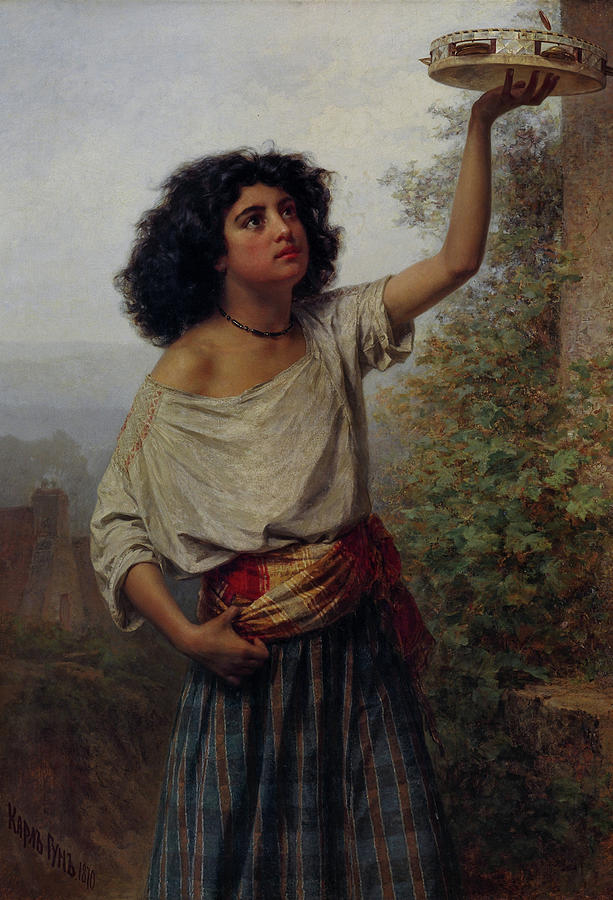
Federico García Lorca, by his full name Federico del Sagrado Corazón de Jesús García Lorca (1898–1936), was a Spanish poet, playwright, and theatre director. Between 1924 and 1927, he wrote the poetry collection Romancero gitano (Gypsy Ballads), which he published in 1928. It brought him fame, and it remains his best known book of poetry.
At the beginning of the Spanish civil war, García Lorca was assassinated by Nationalist forces. As motives for his murder, one has proposed his socialist sympathies, his homosexuality, or simply jealousy. After Franco’s victory, all his works were banned in Spain until 1953. Afterwards, only censored versions of his Obras completas (Complete Works) were published. His heavily homoerotic Sonetos del amor oscuro (Sonnets of Dark Love), written in 1936, were published only in 1983.
The second poem of Romancero gitano, “Preciosa y el aire” (“Preciosa and the Breeze”), dedicated to Dámaso Alonso, tells about a gypsy girl called Preciosa, who “comes playing her moon of parchment,” probably her tambourine. The wind asks her to let it lift her dress and “open the blue rose” of her womb. She flees to the the house of the English Consul, while “the angry wind bites the air above the roofs.”
I give below the translation by A. S. Kline:
Preciosa and the Breeze (Preciosa y el aire)
Preciosa comes playing
her moon of parchment
on an amphibious path
of crystals and laurels.
The silence without stars
fleeing from the sound,
falls to the sea that pounds and sings,
its night filled with fish.
On the peaks of the sierra
the carabineers are sleeping
guarding the white turrets
where the English live.
And the gypsies of the water
build, to amuse themselves,
bowers, out of snails
and twigs of green pine.
*
Preciosa comes playing
her moon of parchment.
Seeing her, the wind rises,
the one that never sleeps.
Saint Christopher, naked
full of celestial tongues
gazes at the child playing
a sweet distracted piping.
— Child, let me lift your dress
so that I can see you.
Open the blue rose of your womb
with my ancient fingers.
*
Preciosa hurls her tambourine
and runs without stopping.
The man-in-the-wind pursues her
with a burning sword.
The sea gathers its murmurs.
The olive-trees whiten.
The flutes of the shadows sound,
and the smooth gong of the snow.
Run, Preciosa, run,
lest the green wind catch you!
Run, Preciosa, run!
See where he comes!
The satyr of pale stars
with his shining tongues.
*
Preciosa, full of fear,
way beyond the pines,
enters the house that belongs,
to the English Consul.
Alarmed at her cries
three carabineers come,
their black capes belted,
and their caps over their brows.
The Englishman gives the gypsy girl
a glass of lukewarm milk,
and a cup of gin that
Preciosa does not drink.
And while, with tears, she tells
those people of her ordeal,
the angry wind bites the air
above the roofs of slate.
Source of the poem: The site Poetry in Translation has given the translation by A. S. Kline of García Lorca’s Poems of Love and Death; “Preciosa and the Breeze” is found there. Both that translation and the Spanish original of the poem can be found on the site Poesia; the two together are also in the Spanish Poems blog. Wikisource gives the Spanish original of Romancero gitano and of “Preciosa y el aire.”

